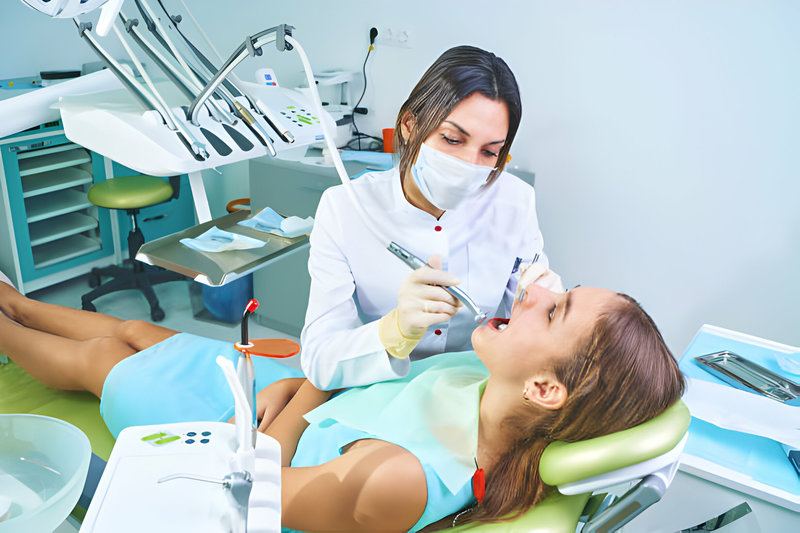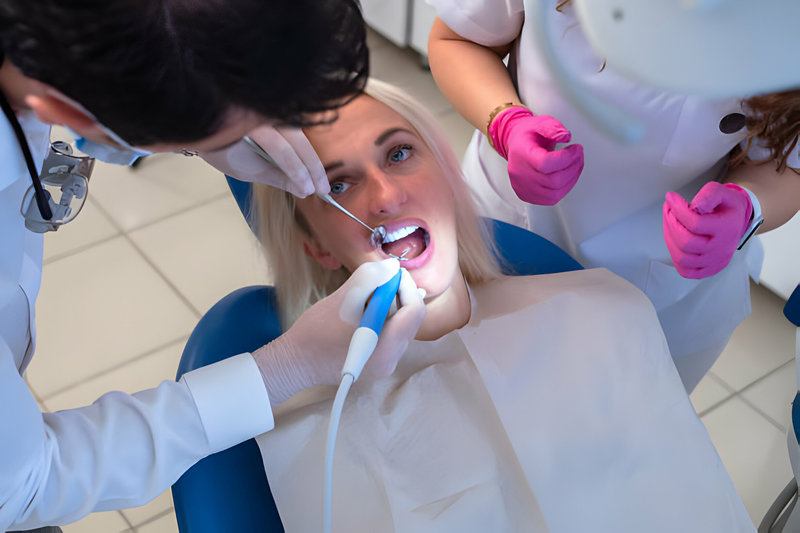
Discover What To Do At the Time Of Dental Emergency
Summary:
Dental emergencies are uncertain! It can happen at any time without warning.
Things can become severe if you lack the proper methods to navigate such uncertainties. Underlying oral issues can sometimes lead to emergencies like severe toothache, swelling, or bleeding, which demands immediate attention from the emergency dentist to alleviate pain and prevent additional problems.

Considering our research around dental emergencies, we’ve listed a few pointers to help you navigate the process. Let’s learn more about:
- Dental Emergencies – What is it About?
- How to Prepare for an Oral Emergency
- Essential Steps to Navigate Through Dental Emergencies
- When to Seek Medical Assistance?
- Alternatives to Traditional Treatment Options
Continue reading as we learn more about what to do during emergencies and navigate better through such situations.
Dental Emergencies – What is it About?
Every year, there are almost 2 million visits for dental emergencies in America, where most patients report severe dental pain. Oral emergencies can occur unexpectedly, causing severe pain, discomfort, and potential damage to oral health.
That is why it’s crucial to understand different types of oral emergencies and recognize when immediate attention is required.
Common Types of Dental Emergencies
Toothaches:
Toothaches, ranging from mild discomfort to severe pain, often signal underlying issues like cavities or infections, necessitating immediate dental examination and treatment such as fillings or root canals to alleviate pain and restore oral health.
Chipped or Broken Teeth:
Whether resulting from trauma or weakened tooth structure, chipped or broken teeth require prompt care to prevent further damage or infection; treatment options like bonding, crowns, or implants can effectively restore the tooth’s function and appearance.
Knocked-Out Teeth:
Swift action is crucial when a tooth gets knocked out, as preserving the tooth’s viability by keeping it moist and seeking urgent care with a dentist can enable attempts at re-implantation or restoration with implants or bridges to maintain oral health and aesthetics.
Lost Dental Fillings or Crowns:
Experiencing discomfort or sensitivity due to lost fillings or crowns necessitates timely attention to replace the restoration, safeguarding the tooth from decay or damage and ensuring continued oral health and comfort.
Abscesses or Dental Infections:
Dental abscesses are another crucial sign indicating dental emergencies. It is characterized by pain, swelling, and fever, and immediate attention is required to drain the infection, prescribe antibiotics, and address the underlying cause through procedures like root canal therapy or extraction to prevent further complications and promote healing.
How to Prepare for an Oral Emergency
The first thing you should do in an emergency is call your urgent dentist. You can contact an emergency facility if you don’t have a regular dentist. Several dentists provide emergency services after hours.
After making the call, inhale deeply and try to maintain your composure. Your ability to adhere to your dentist’s instructions will improve with your level of composure and coolness.
Over-the-counter pain relievers can assist if you’re in discomfort until you can see a dentist. Just ensure that nothing else goes in your mouth except the medicine since this might exacerbate any damage to your gums or teeth. Once you have an idea of the situation, don’t waste your time and connect with the dentist urgent at the earliest.

Essential Steps to Navigate Through Dental Emergencies
Encountering a dental emergency can be a daunting experience, but being prepared and knowing how to react can make all the difference in managing the situation effectively. Here, we outline comprehensive steps to take when faced with an emergency:
Maintain Composure and Assess the Situation
Amidst the panic often accompanying an emergency, it’s crucial to remain calm. Take a moment to evaluate the severity of the issue. Is it causing significant pain? Is there bleeding or swelling? Understanding the extent of the problem will help you respond appropriately.
Contact Your Dentist Immediately:
Time is of the essence in dental emergencies. When you recognize the situation’s urgency, contact your dentist in Whiteville, NC. Many practices have provisions for emergency cases or can guide the following steps. Having their contact information readily available can streamline the process.
Address Swelling and Inflammation:
Swelling in the mouth or facial area is expected during oral emergencies, particularly in cases of infection or trauma. Applying a cold compress to the outside of the affected area can help reduce swelling and alleviate discomfort. Be sure to wrap the ice pack in a cloth to prevent direct contact with the skin, which could cause frostbite.
Alleviate Pain:
Dental emergencies often come with discomfort or severe pain, which could disrupt your peace. Over-the-counter pain relievers by dentist emergency care can provide temporary relief until professional help is available. Following the recommended dosage and avoiding any medications you may be allergic to is essential.

Handle Knocked-Out Teeth with Care:
EMG dental problems like a knocked-out tooth require special attention to maximize the chances of successful re-implantation. Hold the tooth by its crown (the top part) and gently rinse it with water to remove dirt or debris. If possible, try to reinsert the tooth into its socket, not touching the root.
Exercise Caution with Home Remedies:
While exploring home remedies or DIY treatments may be tempting, especially in desperation, it’s crucial to exercise caution. Some home remedies may worsen the situation or cause further damage to your teeth and gums. It’s always best to call an emergency dentist and wait for professional guidance.
Follow Up with Your Dentist:
Follow up with your emergency dentist for further evaluation and treatment is essential after they have addressed the initial emergency. Even if the dentist has resolved the immediate issue, underlying issues may require attention to prevent future emergencies. Your urgent dentist can provide personalized care and advice to maintain oral health.
When to Seek Medical Assistance?
If you have an emergency, you should get medical help quickly. Dental crises are typically unpleasant and need care to avoid additional harm. Furthermore, a particular dentist emergency might indicate a more serious underlying problem. As a result, it is critical to seek medical attention to obtain an accurate diagnosis and treatment.
Alternatives to Traditional Treatment Options
When it comes to dental emergencies, there are several choices other than typical treatment. One alternative is to go to an urgent care clinic or a hospital emergency room. Another alternative is to approach a dentistry school or teaching hospital. Additionally, several dentists provide after-hours emergency care.
Takeaway
- Dental emergencies can cause severe pain, discomfort, and bleeding in some cases.
- Toothaches, soft tissue damage, trauma, etc., are emergencies requiring immediate attention.
- Avoid extensive rinsing and brushing to manage bleeding, and use pain relievers in case of severe pain. Follow regular oral hygiene to prevent emergencies.
- Don’t let the complexity of a dental emergency confuse you. Visit our clinic at Carolina Coast Family Dentistry today!
